Welcome to another issue of The Newport Cornucopia where we dig through the newspapers archives for interesting news articles and adverts. All articles are posted verbatim and most headlines are original (headlines in quotes are my own).


The Happy Little Japs
The Happy Little Japs were jugglers, rope-walkers and acrobats who made a number of appearances at the Empire between 1902 and 1910. I've been unable to find any pictures of them but a review of them appeared in the South Wales Argus in July 1904.
The Andos Happy Little Japs made their appearance in national costume, with a background of magnificent Japanese tapestry, and a wonderful carpet under them, and they gave a remarkable performance of juggling, acrobatics, and rope-walking. With stick and ball one member of the company did some pretty feats, but there were three especially remarkable features of their performance.
In one a youth, after doing a long-arm balance on a small block at the top of a fixed pole, bent backwards till feet and hands rested on the block, then rose erect to his feet, and then returned to the long-arm balance — a very daring and clever performance.
The same youth walked up a rope at an acute angle from the stage to the gallery, and slid down it; while a child did a series of acrobatic feats on a long bamboo pole which his leader of the troop balanced on his shoulder.
— South Wales Argus, 5th July, 1904 (Subscription Required)


Coat and Trousers Stolen at Newport
Young fellow names James Sullivan, of no fixed abode, was charged at Newport Police Court on Friday with stealing a pair of men's trousers from 121, Commercial Street, Newport, the property of Owen Bros., and with stealing a jacket from an office at 77, Dock Street, the property of George Walters. Both robberies were coolly carried out.
He appropriated a new pair of trousers from outside Owen Bros, shop in broad daylight on Wednesday, and tried to pawn them at Messrs. Jacob and Co's. where the assistant suspected him, with the result that P.S. Cox arrested him. In the other case he walked into the office at 77, Dock Street, and took the jacket off a peg where Walters had hung it, and pawned it at Joseph Taylor's 119, Commercial Road.
Nothing was known of the prisoner, who pleaded guilty, said he was in drink at the time, and was committed for two months. A month in each case.
— South Wales Argus, 21st August, 1903 (Subscription Required)
A Writ of Error
Thomas Rafferty, a wild-looking peripatetic dealer, stood forward charged with having assaulted an old and venerable son of an Israelitish tribe, named Abraham Cohen. Abraham told a long tale of the assault. He was a wanderer up and down over the face of the earth, and vended imitation of ornaments of silver and gold and precious stones; and Rafferty was a Gentile of the same profession. It was in February last in stormy weather, when both met in a house of rest in ghost-haunted Pillgwenlly, and offered their wares. And one man came forward and asked Abraham the price of a goodly double-bladed knife —a price was named; but he of the wild countenance offered a similar article at a reduction of price; whereupon much chaffing followed, and at length the vile hands of the Gentile were laid on the ancient Hebrew, and nearly knocked his eye out. This was the assault Cohen complained of.
Mr. Woollett, for the defendant, cross-examined Abraham and afterwards addressed the bench. He would take an objection to the information. The offence was alleged to have been committed within the borough of Newport, whereas it was proved to have taken place in the parish of St. Woollos; and he would beg to observe further, that the fine, if any should be inflicted—would of right be payable to the overseers of the parish of St. Woollos, and therefore the magistrates possessed no jurisdiction.
Mr. Pyke said the parish of St. Woollos was included in the borough of Newport, under the Municipal Corporation Act; that the justices were appointed for the whole borough, and not for the old borough jurisdiction only — therefore that it was quite competent for them to adjudicate in the present case. The fine was payable to the county, and not to any particular parish — consequently the information was correct.
The magistrates were of the same opinion, and the case proceeded.
Mr. Woollett resumed his cross-examination, but elicited nothing material.
The magistrates convicted Rafferty in 20s, and 12s 6d costs.
Defendant, in a brawling voice and hold attitude, with every appearance of the "do-your-best" feeling, and evidently post-valiant, exclaimed: Then I'll not pay it—no! never a copper — I'll go elsewhere — I'll go to some higher court, sirs, where I can have right and justice done me — (flourishing his arms) — yes sir, I will!
Mr. Woollett, to defendant, amidst much laughter: Hold your tongue—don't be foolish.
Defendant: No, never! I'll not give up to Jew or Gentile, (A laugh.)
Mr. Hughes: Mr. Rafferty, what have you been doing this morning?
Rafferty: Doing? Why, what I do every morning of life, an'shure. (Loud laughter.)
Mr. Hughes: I think we shall not be doing our duty if we do not convict you of drunkenness this morning.
Rafferty, with a Bacchanalian swagger, and wicked leer: Ay, thin, ye may just do as you like—it's a matter of perfect indifference to me, (Laughter.)
Mr. Pyke: What punishment do you inflict, gentlemen, if default of payment?
The Bench: In default of payment, Rafferty, we order you to be imprisoned one month in the House of Correction at Usk.
The defendant looked blank and crest-fallen at this announcement, but gathered himself up, again vehemently vowed he wouldn't "pay a rap."
Mr. Woollett: Oh, hold your tongue, you fool, will you? (Loud Laughter.)
The noisy end obstreperous fellow's commitment to Usk was then made out, and he walked off in custody, shouting — "I'll go wid ye, Misther Peeler, quit jonteely; but tare an' ouns, it's to the higher court I'll be appale-ing, and sure I am itt ull repale the sintince, by a writ of error!" (Laughter.)
— Monmouthshire Merlin, 23rd March, 1844

'Controversial Painting Exhibited in Newport'

A painting was exhibited in Newport in 1903 which was billed as a 'sensation'.
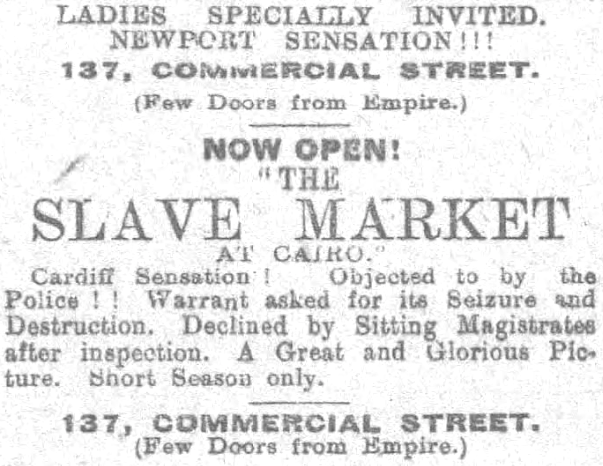
"The Slave Market At Cairo"
Important Picture at Newport
No doubt the exhibition at 137, Commercial Street, Newport, of the famous picture, "The Slave Market at Cairo," will set afoot once more the controversy whether any good purpose is served by such a picture. Some will take the moral standpoint, some will speak for the art, but no final judgement will be arrived at. The picture was painted by M. Dastugue, and was exhibited at the Paris Salon in 1891; it was purchased by a syndicate, and since then it has been taken from town to town and exhibited.
It is a wonderful picture, and if, as it is claimed, it is true presentation of a phase of Oriental life, it has a historical interest. The picture represents an Egyptian interior, and grouped against the wall — standing, sitting and reclining — are a number of slaves, Circassians, Egyptians, and Nubians. The figures are beautifully painted, some of the faces are lovely; while the faces and figures of the prospective buyer who sits in contemplation of the slaves, and of the slave-dealer and the pacha who are in conference are masterly studies. The whole picture, in grouping, colour and character, is a great composition.
— South Wales Argus, 21st August, 1903 (Subscription Required)

The 16 x 13 foot painting had a bit of history in all the places it had been exhibited since it was painted in 1891. Every place it was exhibited from Dublin to Glasgow to Sunderland to Bolton to Birmingham had gained the attention of police, magistrates, politicians and reverends who deemed it offensive.
Newport was no different and a reverend and politician petitioned a magistrate to deal with the exhibition under the Vagrancy Act of 1858 by classing the exhibitor as a 'rogue and vagabond'. They refused and the painting was exhibited.
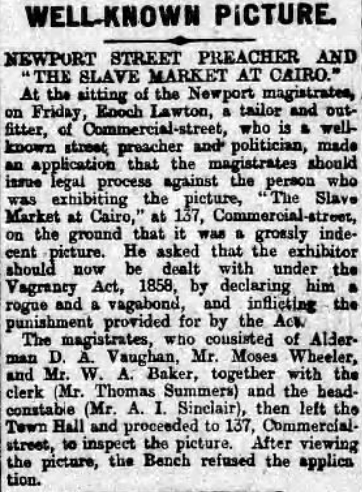

'Castle Brewery Waggoner Run Over by Own Wagon'
On Saturday se'nnight (sic), as the waggoner belonging to the Castle Brewery, Newport, was driving homeward, he imprudently sat on the shaft, and by Cross-y-Ceilog, near Pont-rhyd-yrun, he fell off, and the wheel went over him, fracturing one of his legs, and causing an extensive laceration of the right arm. Mr. Jones, surgeon, Pontypool, was called to his assistance, and, owing to his skilful exertions, the man appears to be in a state of recovery.
— Monmouthshire Merlin, 25th December, 1830



Summer Clothing for the Police
The Mayor wished to know whether it was the desire of the Watch Committee that the police should be supplied with summer trousers as heretofore. The Superintendent had mentioned the subject to him, and he should like to know the opinion of the meeting upon the matter. It was agreed, after some discussion, that the men should be supplied with one pair each, of a similar kind to those worn last year.
— Monmouthshire Merlin, 28th July, 1856

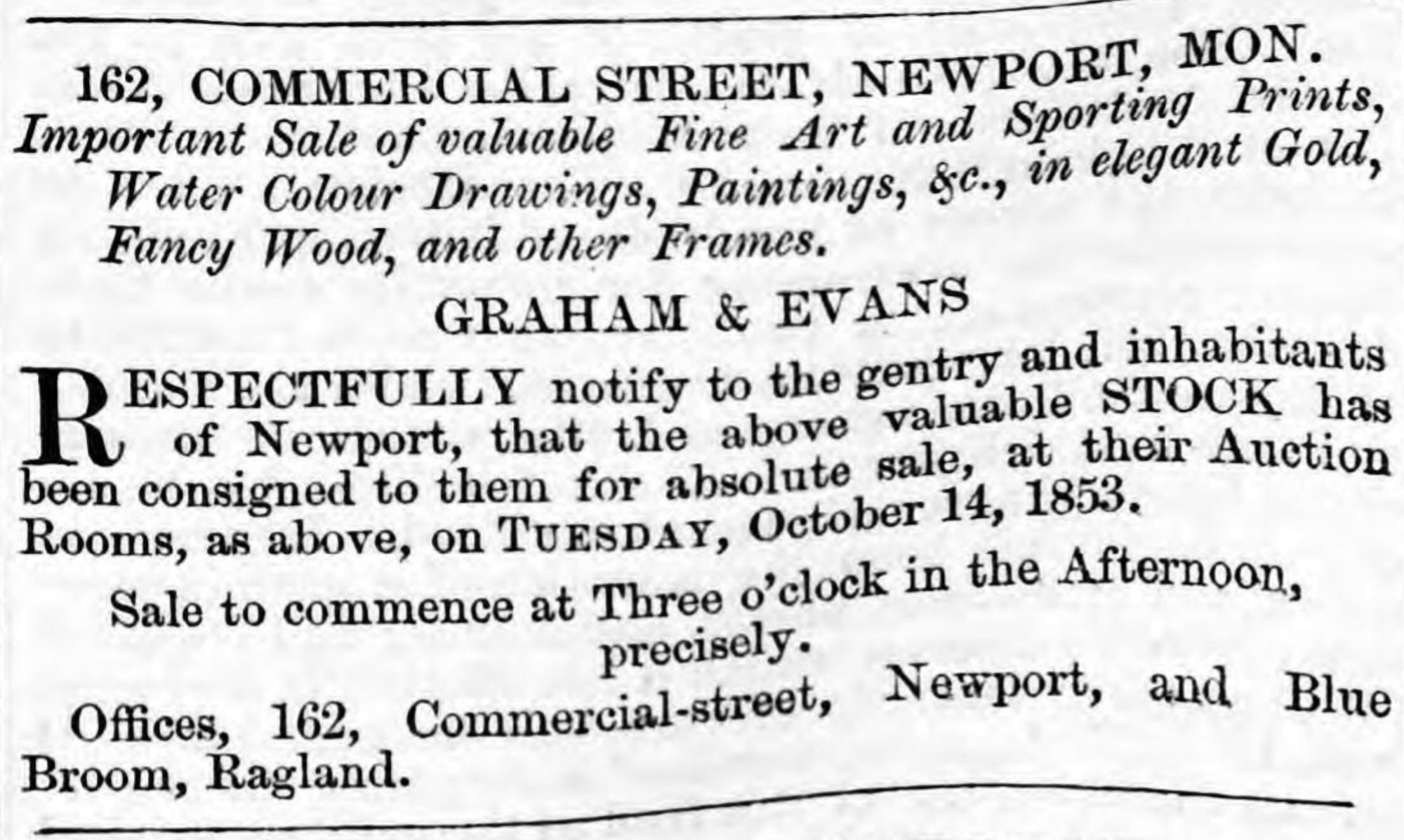

Novel Importation
The fine bark Mary Ann Duffus, belonging to Mr. John Vipond, has just arrived in the Newport Dock, with a cargo of Spanish wool from Malaga, consigned to an eminent manufacturing firm at Manchester. This shipment is an experiment to ascertain if by this route, avoiding the heavy town dues of Liverpool, goods can be sent into Manchester via Newport, on equal terms with those of the great Northern emporium.

A liberal policy on the part of our local railways, together with a reduction of the Dock dues, would, without doubt, make our port a Dock dues, would, without doubt, make our port a successful rival of Liverpool.
— Monmouthshire Merlin, 6th October, 1860

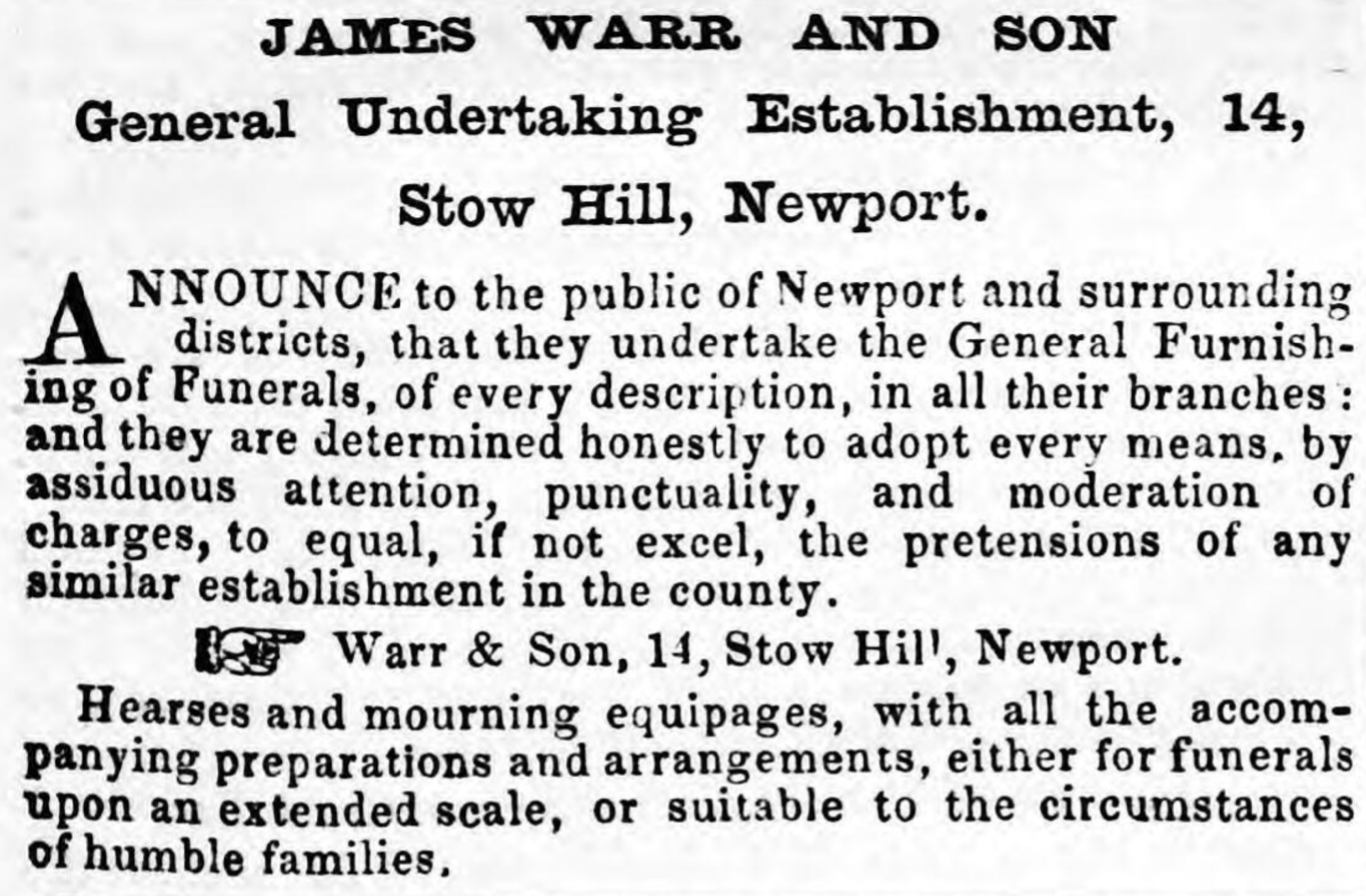

Supposed Infanticide
The grave-yard of St. Woollos church has often been the untimely depository of new-born babes, the termination of whose existence, in some cases, has been conjectured premature, "foul, and unnatural".
Another instance of this nature was discovered on Saturday last, when the body of a new-born infant, hearing indications upon it, we are informed, of barbarous treatment, was found in the grass between the graves. Inquiry is on foot, which, it is hoped, will be successful.
— Monmouthshire Merlin, 30th March 1844

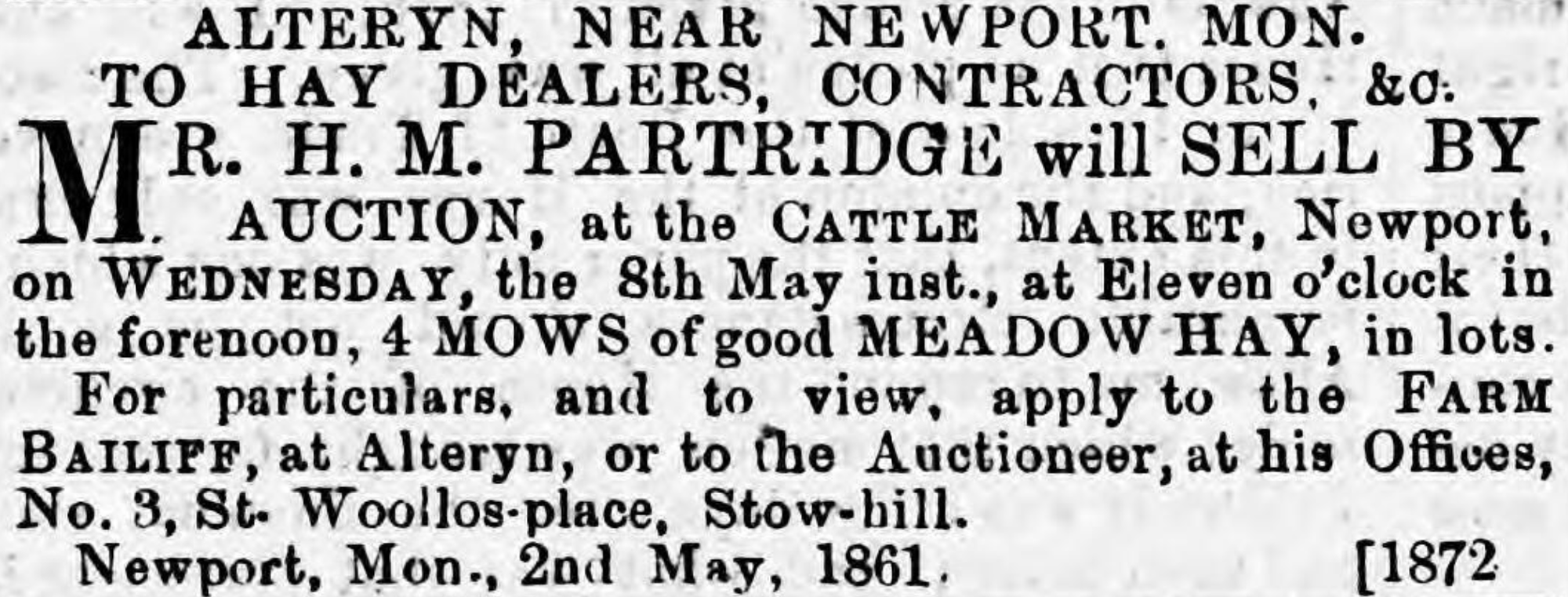

'Man Scares People in Hideous Mask'
Several timid females, and not a few stout-hearted men, have been almost frightened out of their wits on dark moonless nights,
by some fool who takes uncommon pleasure in disguising himself in a hideous mask, and female's apparel,
and rushing out upon unwary passers-by, from the porch, or some other hiding place, in Saint Woollos church yard.
We hope the fellow will not only get a stout cudgelling some night on which he plays off such dangerous pranks, but be captured by the place, and locked up in the cell of the Station, there to ruminate on his absurd folly. A gentleman with a good stick in hand, to whom this apparition presented itself, soon vanished, or the gentleman would presently have "laid the ghost."
— Monmouthshire Merlin, 30th March 1844

Furious Driving
The drivers of water carts in this good town have apparently a license to dash or drive furiously through the streets, as if hastening with the element for the "cold water cure," heedless of the risk attached to such Phaeton-like practices.
Last Tuesday, two of this genus came up through Commercial-street — one on each side of two large waggons slowly progressing along — and lashing their poor jaded animals into a terrible gallop, they raced with Nutwith speed towards Bane's Well. On coming just opposite the Town Hall, one of the drivers keeping close to the pavement, by Mr. Clapperton's shop brought his near wheel suddenly in contact with a large "gout" stone, which immediately checked the horse, and flung the whole concern spinning into the middle of the road. It was somewhat ludicrous — even at so serious a spectacle — to observe how easily the driver was dismounted from his striding position across the water butt, and how the uppermost wheel performed about a thousand evolutions in a moment.
The Jehu was soon able to pick himself up, and replace his Rosinante in the harness, of which the affrighted beast had completelyy divested himself; and then set out at a reasonable pace to overtake his more fortunate competitor, who was then coolly filling his butt to the tune of "All's well." This furious driving should be checked.
We have heard many complaints that such dangerous work is almost of daily occurrence — in fact, that we are under the influence of Aquarius — and yet it has never been heard of, that a single charge has been preferred by the "detective force" against the constantly offending parties.
"A Subscriber" hopes the inhabitants of the town — who have the slightest regard for the lives of themselves or families, will lay informations against such practices, if the police do not.
— Monmouthshire Merlin, 30th March 1844

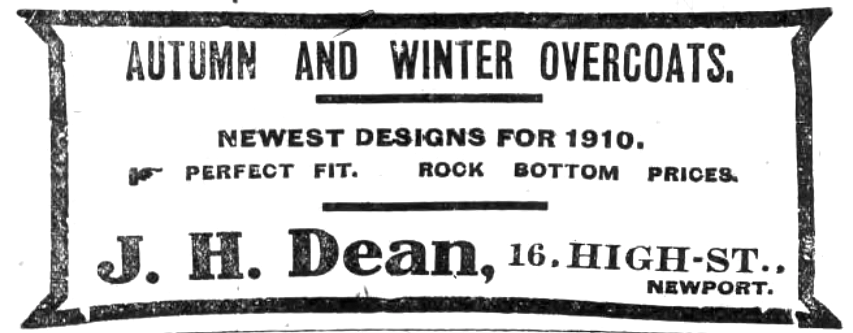

Serious Accident
On Thursday evening, as the Cardiff omnibus, the Economist, was being driven through a narrow part of High-street, in that dangerous defile near the baker's shop at the comer of Griffin-street, it came in contact with a pair of trucks, which threw the omnibus out of it's course By this sudden diversion, the omnibus knocked down Mr. Phillips, grocer, who resides opposite the Westgate and unfortunately fractured his leg.
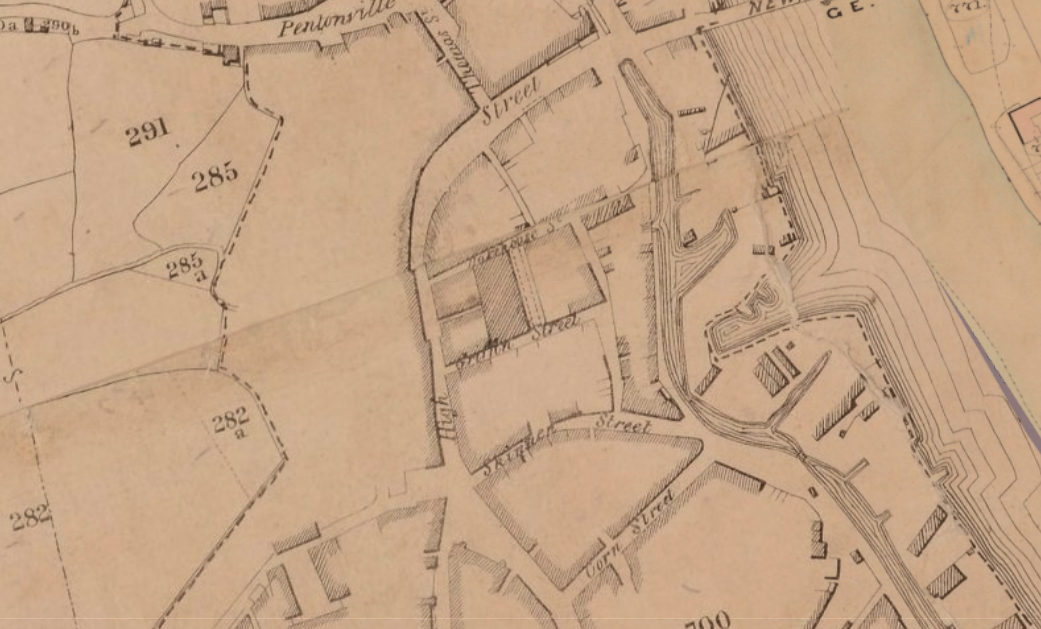
A policeman was also knocked down, the omnibus passing over his leg and the boy who was wheeling the trucks, was slightly injured as well. The accident was said to be the result of the collision, the narrow street, and the absence of good gas light in that particular spot.
The driver, who proceeded to the house of Mr. Phillips, and expressed deep regret at the untoward accident, is said by persons who were present, to deserve no blame, as it would be almost impossible to prevent the unhappy combination of circumstances on the occasion.
— Monmouthshire Merlin, 30th March 1844

A Cheese Taster
These instruments are not always made of iron or steel, though they are constantly "borers". A taster with hands and feet, and a nice palate for a "double Gloster," entered the shop of a tradesman in West gate-street. Newport, recently, and desired to be shown a cheese. "It was done, and he tasted plentifully and his desire to have some really first-rate" was so strong, that he tasted of nearly every cheese in the store, no small number; after which, fixing on one that he deemed of the right quality, he very coolly desired the shopkeeper to serve him with "threehap'orth!" The astonishment of the worthy cheesemonger can be better imagined than described.
— Monmouthshire Merlin, 30th March 1844


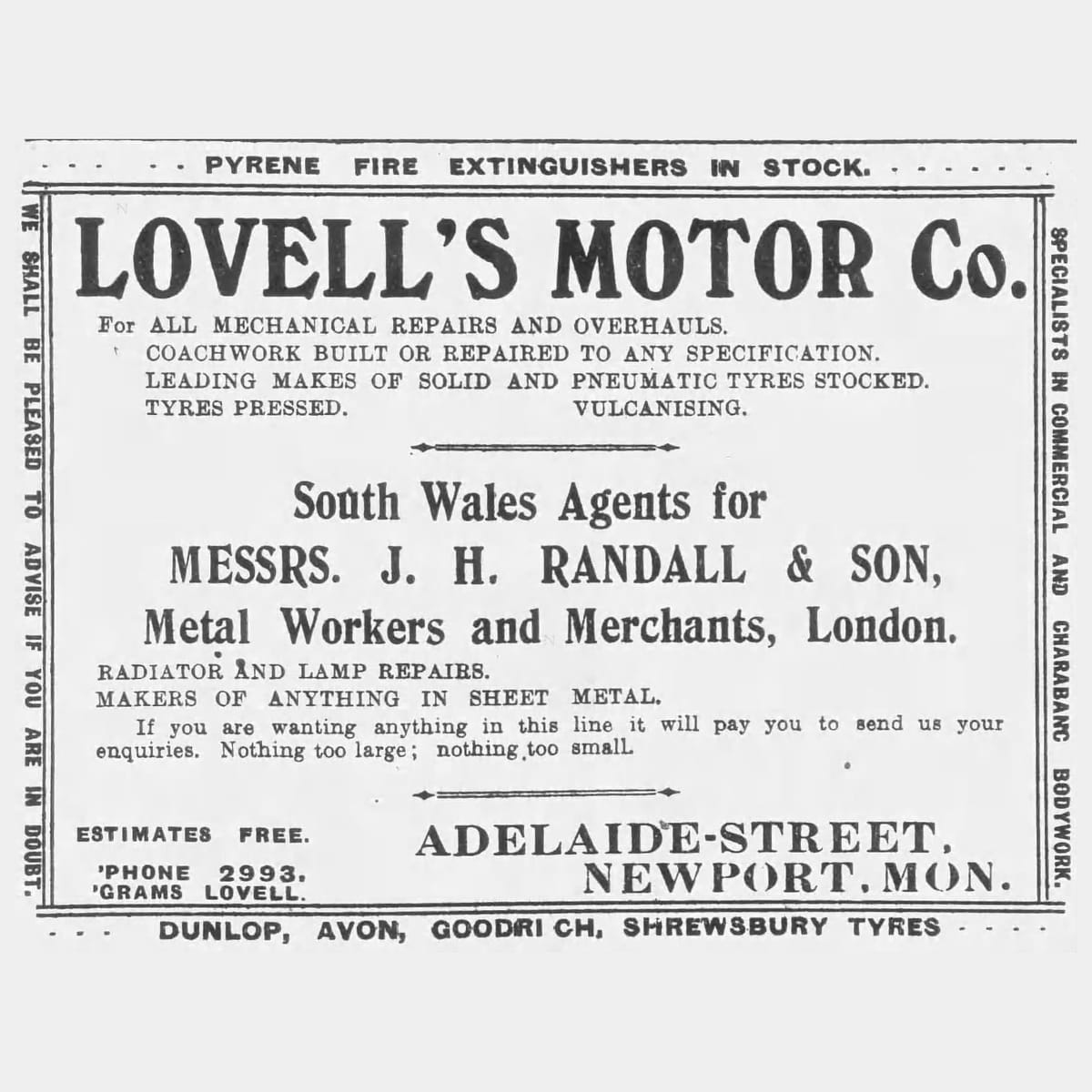
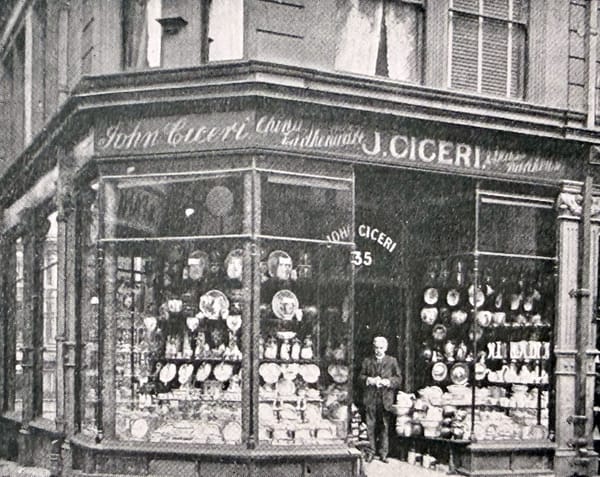
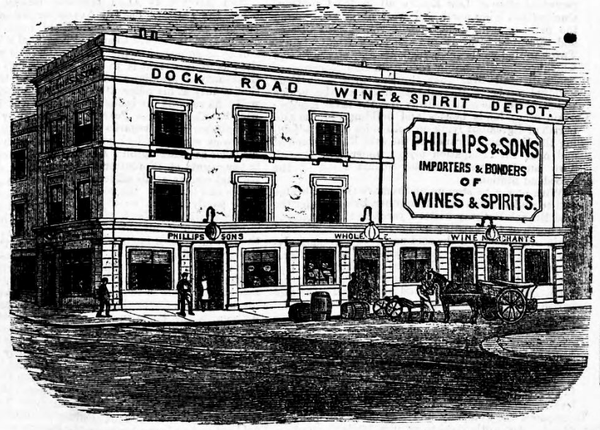
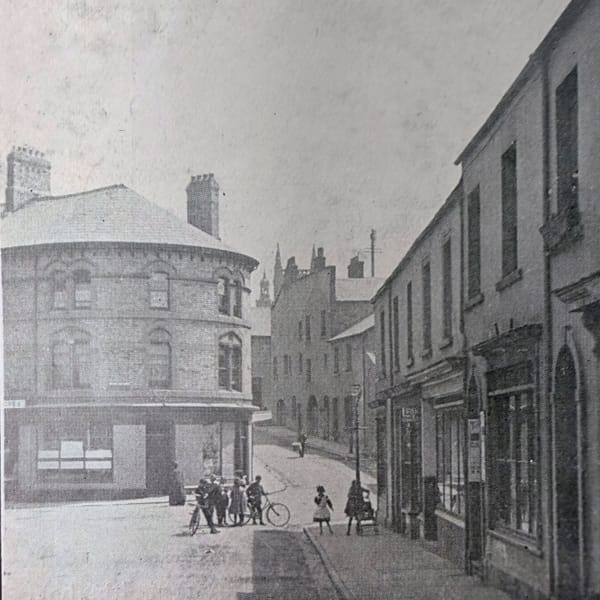
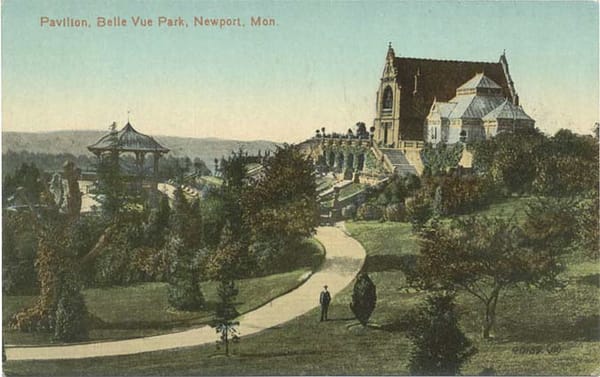
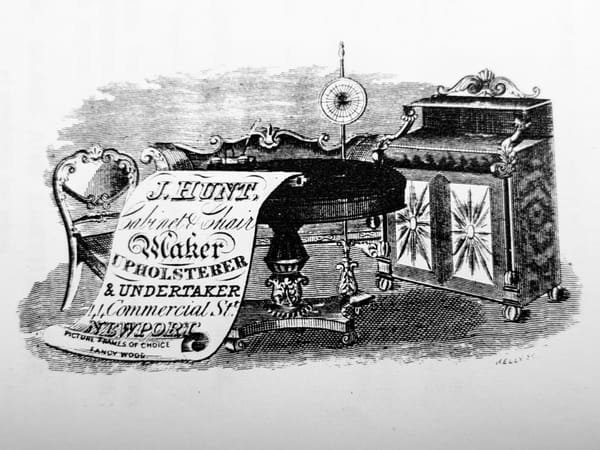
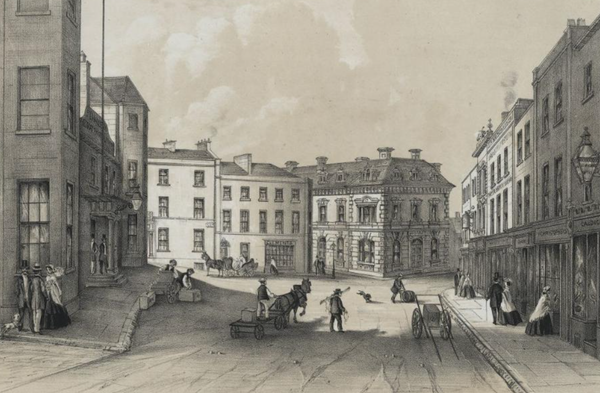
Member discussion